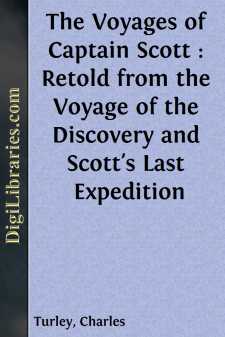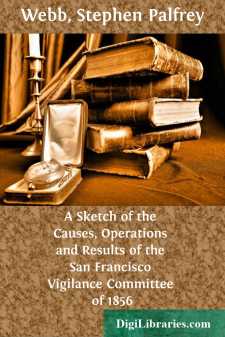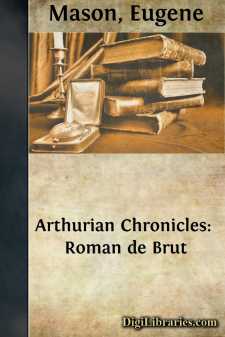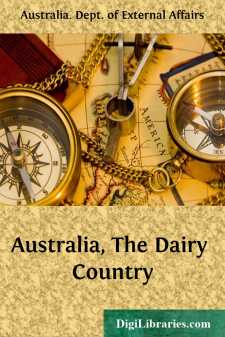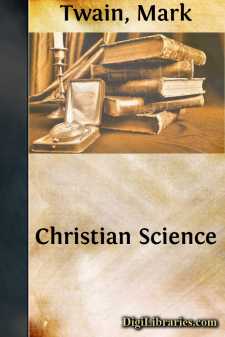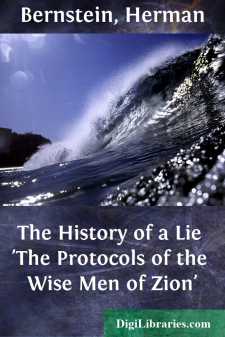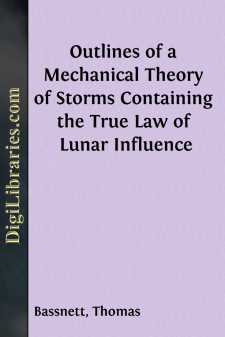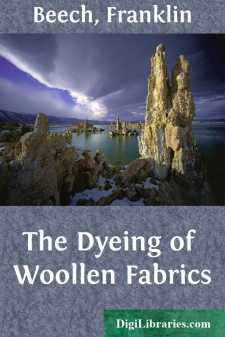Non-Classifiable
- Non-Classifiable 1768
Non-Classifiable Books
Sort by:
by:
Charles Turley
On the night of my original meeting with Scott he was but lately home from his first adventure into the Antarctic and my chief recollection of the occasion is that having found the entrancing man I was unable to leave him. In vain he escorted me through the streets of London to my home, for when he had said good-night I then escorted him to his, and so it went on I know not for how long through the...
more...
Stephen Palfrey Webb was born in Salem on March 20, 1804, the son of Capt. Stephen and Sarah (Putnam) Webb. He was graduated from Harvard in 1824, and studied law with Hon. John Glen King, after which he was admitted to the Essex Bar. He practiced law in Salem, served as Representative and Senator in the Massachusetts Legislature, and was elected Mayor of Salem in 1842, serving three years. He was...
more...
by:
Eugene Mason
I.вÐâWACE In the long line of Arthurian chroniclers Geoffrey of Monmouth deservedly occupies the first place. The most gifted and the most original of their number, by his skilful treatment of the Arthurian story in his Historia Regum Britanniae, he succeeded in uniting scattered legends attached to Arthur's name, and in definitely establishing their place in chronicle history in a form...
more...
The suitability of Australia as a country for the dairyman is referred to in the report of the Scottish Agricultural Commission, who toured the States of the Commonwealth in 1910-11, in the following terms:—An up-to-date Milking Yard."The practice of dairying, in a limited domestic sense, as applied to the milking of a few cows and the making of a little butter and cheese for family use, is as...
more...
by:
Mark Twain
CHAPTER I VIENNA 1899. This last summer, when I was on my way back to Vienna from the Appetite-Cure in the mountains, I fell over a cliff in the twilight, and broke some arms and legs and one thing or another, and by good luck was found by some peasants who had lost an ass, and they carried me to the nearest habitation, which was one of those large, low, thatch-roofed farm-houses, with apartments in...
more...
by:
George Thibaut
INTRODUCTION. To the sacred literature of the Brahmans, in the strict sense of the term, i.e. to the Veda, there belongs a certain number of complementary works without whose assistance the student is, according to Hindu notions, unable to do more than commit the sacred texts to memory. In the first place all Vedic texts must, in order to be understood, be read together with running commentaries such...
more...
by:
Herman Bernstein
FOREWORD This is the history of a Lie—of a cruel and terrible Lie invented for the purpose of defaming the entire Jewish people. Given out as fiction, by a German anti-Semitic writer, involved in the Waldeck forgery case, who concealed his identity under the pen-name of an Englishman, it was gradually changed and elaborated, and finally groomed as fact. Agents of the Russian secret police department...
more...
FOREWORD Once upon a time as four blind men sat by the roadside they heard the tramp of an elephant’s feet, and said one to another, “Here comes an elephant; now we shall know what he is like.” The first blind man put out his hand and touched the elephant’s broad side. The second took hold of a leg. The third grasped a tusk, and the fourth clutched the animal’s tail. “Now do you know what...
more...
by:
Thomas Bassnett
SECTION FIRST. PRESENT STATE OF METEOROLOGY. The present state of the science of which we are about to treat, cannot be better defined than in the words of the celebrated Humboldt, who has devoted a long life to the investigation of this department of Physics. He says: “The processes of the absorption of light, the liberation of heat, and the variations in the elastic and electric tension, and in the...
more...
by:
Franklin Beech
CHAPTER I. THE WOOL FIBRE. Wool is one of the most important textile fibres used in the manufacture of woven fabrics of all kinds. It belongs to the group of animal fibres of which three kinds are met with in nature, and used in the manufacture of textile fibres; two of these are derived from quadruped animals, such as the sheep, goat, etc., while the third class comprises the products of certain...
more...


